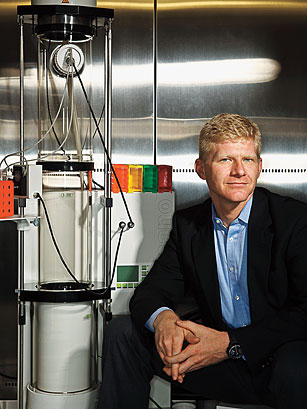
Because of the huge cost of research and development, many drugs are too expensive for the developing world. And in cases where a disease is found predominantly in poor nations, as dengue fever is, the drugs are never even developed because pharmaceutical firms don't see a sufficient return on investment.
Medicine in Need (MEND) is a nonprofit that applies a venture-capital model to create drugs and delivery technologies at the lowest possible cost. One is the nanoneedle — tens of thousands of microscopic needles clustered together that work like a conventional one but require about one-hundredth of a vaccine to achieve immunity. MEND is also working on cheap vaccines for malaria and rotavirus. CEO Andrew Schiermeier says its most advanced project is an inhaler for treating tuberculosis that doesn't require refrigeration.
MEND's strategy is to license its products to drug companies to sell at an affordable cost to the poor. Royalties then fund new research. Schiermeier, a 40-year-old from Cambridge, Mass., with a background in Big Pharma and venture capital, calls this combining emerging technologies and emerging markets. By turning the conventional wisdom of billion-dollar drug development on its head, MEND is creating a market for health care in the places that have always needed it most. "Everything we are making has to be made for pennies," says Schiermeier. "That turns out to be a way to discover some really cool stuff."
—by Alex Perry